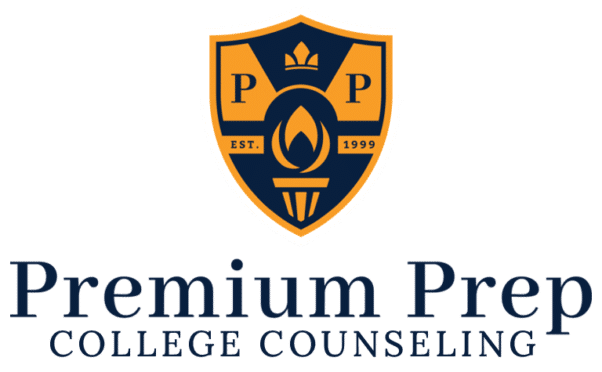5 Common College Application Mistakes and How to Avoid Them

The college application process can feel overwhelming, and with so much at stake, it’s easy to make simple mistakes that can hurt your chances of getting into your dream school. However, understanding these common pitfalls — and knowing how to avoid them — can set you up for success. We’ll cover five of the most common mistakes students make during the college application process and how you can avoid them.
1. Procrastinating on the Application Process
One of the biggest mistakes students make is waiting until the last minute to start their applications. When rushing, it’s easy to overlook important details, make careless errors, or submit a subpar essay that doesn’t reflect your best work. Procrastination also means less time to request strong letters of recommendation, gather required documents, or make thoughtful decisions about which colleges are the best fit for you. You may also miss out on scholarship or interview opportunities, which sometimes have earlier deadlines.
How to Avoid It: Start early! You can begin prepping for college at any time while in high school. Ideally, begin preparing your application materials, including your essays and list of schools to apply to the summer before your senior year of high school. Create a timeline and checklist for each application, breaking down important tasks to ensure you’re staying on track. Starting early will give you the breathing room to revise and perfect your application materials, so you won’t have to scramble at the last minute.
2. Submitting Generic Essays
The essay is one of the most important parts of your application, yet many students overlook its significance. Your personal essay is your opportunity to stand out, but many students make the mistake of submitting a generic, cookie-cutter essay that doesn’t capture who they are. While tools like ChatGPT and similar AI platforms can be tempting to use for drafting essays, colleges are specifically looking for genuine insight into the student’s personality, values, and experiences — something AI can’t provide. Admissions officers read thousands of essays each year, so it’s crucial that yours is authentic and offers a personal connection that leaves a lasting impression.
How to Avoid It: Spend significant time brainstorming topics that are meaningful to you, and make sure your essay addresses the prompt. A strong essay should be authentic, reflective, and well-written, giving the admissions committee a sense of who you are as a person. Have multiple people review your essay for clarity, grammar, and content. At Premium Prep, our students work with both a college counselor, who supervises things from the perspective of admissions strategies, and a writing specialist to help develop and scrutinize the writing itself.
3. Not Creating a Balanced List of Schools
Another common mistake is applying to either too many schools or too few, in an unbalanced college list. Applying to too many schools can lead to burnout, rushed applications, and a lack of focus on each one. On the other hand, applying to too few schools can limit your options and reduce your chances of acceptance. Many students focus solely on applying to “reach” schools — those that are highly selective and difficult to get into — without considering “likely” or “target” schools where their chances of acceptance are higher. This can leave you with few options if you’re not accepted into your top-choice schools.
How to Avoid It: A well-rounded college list should include a mix of reach, target, and likely schools. “Reach” schools are those where your academic credentials, such as GPA and test scores, fall below the school’s average accepted student. “Target” schools are those where your academic credentials are on par with the average accepted student. “Likely” schools are those where your credentials exceed the average, making acceptance more likely. By applying to a variety of schools, you’ll ensure you have options.
Premium Prep recommends applying to three to four reach schools, three to four target schools, and three to four likely schools. Our counselors help students curate a well-rounded list of colleges tailored to their academic profile, personal preferences, and long-term goals, ensuring a higher likelihood of acceptance.
4. Underestimating the Importance of Letters of Recommendation
Letters of recommendation provide insight into who you are as a student and person beyond your academic credentials. However, many students overlook this part of the application and fail to approach the right teachers or give them enough time to write a strong letter. As a result, they may end up with generic or weak recommendations that don’t support their application.
How to Avoid It: When selecting teachers or mentors to write your letters of recommendation, choose people who know you well and can speak to your strengths, both academically and personally. Keep in mind that some schools may require specific recommenders, such as a language teacher or guidance counselor, so be sure to check each school’s requirements to ensure you’re asking the right person. Give them plenty of time — we recommend students ask their recommenders before leaving 11th grade — to write the letter and provide them with a brag sheet to help them craft a more personalized recommendation.
5. Overlooking School-Specific Requirements
Many colleges have distinctive application requirements that go beyond the Common App basics, such as supplemental essays, portfolio submissions, or interviews. Missing these additional requirements can leave your application incomplete, potentially resulting in you not being reviewed for admission.
How to Avoid It: Before applying, thoroughly review each college’s specific application instructions. Many schools list specific nuances they expect students to follow when applying. For example, students applying to Georgetown University’s McDonough School of Business are advised to submit a letter of recommendation specifically from a social studies or math teacher. By following these recommendations, you demonstrate that you’re paying close attention to what they’re asking, which can reflect positively on your application. To stay organized, consider creating a spreadsheet to track each school’s unique requirements.
If you’re feeling overwhelmed or unsure about your application strategy, Premium Prep is here to help. Our expert counselors have guided countless students through the process, ensuring they submit polished and competitive applications, giving students a leg up on their competition. Sign up for the free Mini-Program today, which includes a guide to planning, organizing, and navigating your college application process. Use it to stay on track and make informed decisions.
Connect With Your Community
Subscribe for stories that matter!
"*" indicates required fields
























